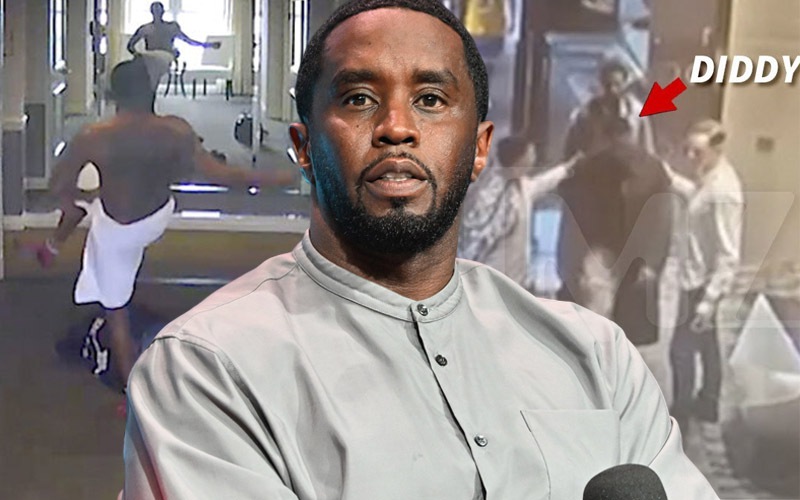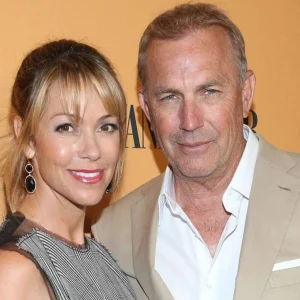Once heralded as the untouchable king of the music industry, Sean “Diddy” Combs is now facing a devastating fall from grace that has drawn intense scrutiny and public fascination. As a multi-millionaire music mogul who constructed an empire on glitz, glamour, and undeniable talent, Diddy’s current predicament—a $100 million default judgment and a magnitude of allegations ranging from sexual assault to abuse of power—has captivated both fans and critics, igniting a discussion about accountability in the face of fame.
The gravity of Diddy’s legal troubles starkly contrasts the lavish lifestyle he once flaunted. Reports indicate that what began as whispers of misconduct have now escalated into a torrent of lawsuits and allegations that threaten to dismantle his entire legacy. The situation has become so dire that one must wonder how a man once commanding rooms with confidence has devolved into a shell of his former self, exhibiting signs of psychological distress and despair.

Diddy’s current residence in the Metropolitan Detention Center (MDC) in Brooklyn is a far cry from the mansions and luxury he once enjoyed. Surrounded by the realities of his new environment—chaotic and overcrowded, marked by violence and a lack of basic amenities—the transition from celebrity life to prison has proven jarring. Insiders paint a picture of a man battling not only legal charges but also his mental health, descending into depression as the walls close in around him.
Amidst a barrage of legal maneuvers, Diddy’s lawyers have attempted various strategies to secure his release, including extraordinary proposals offering financial guarantees and constant surveillance. Yet, the court has remained unyielding, citing concerns about flight risk and witness intimidation. The prosecution’s continued push for an unwavering stance underscores the gravity of the accusations against Diddy. He faces years, if not decades, of potential imprisonment if convicted.
The changing legal landscape has exposed a broader narrative—one that reveals Diddy as a man allegedly operating within a double life. Accusations against him feature a disturbing pattern of manipulation, coercion, and exploitation, particularly targeting vulnerable individuals drawn into his orbit by the promise of fame and opportunity. Multiple alleged victims have stepped forward, detailing experiences at high-profile parties, which they describe as veiled in control and intimidation.
Former associates and event planners have supported these claims, revealing a toxic culture that permeated Diddy’s world. Party experiences that should have been glamorous devolved into feared encounters, raising chilling questions about the behavior tolerated within Diddy’s inner circle. Stories of vulnerability and coercion reveal that attendees often felt trapped, bogged down by an atmosphere where rejecting Diddy’s advances or participation could threaten their professional future.
Amidst this whirlwind, accusations are not limited to historical claims; new allegations consistently emerge, leading to a continuous cycle of revelations. Reports of past incidents, including encounters characterized by violence, harassment, and intimidation, paint a grim picture of an individual seemingly emboldened by his wealth and influence, believing he was beyond accountability.

Diddy’s past was littered with red flags long before the current wave of accusations. Rumors about wild parties and covertly orchestrated events circulated for years but were often brushed aside as part of Hollywood’s excess. However, the resilience of the #MeToo movement has empowered many to come forward, challenging Diddy’s narrative and allowing victims to seek justice against historical oppressors.
One of the more notorious legal skirmishes involves his former girlfriend, Cassie Ventura, who accused Diddy of years of mistreatment, including emotional manipulation and physical harm. While the lawsuit was settled in record time, the details that emerged sparked public outrage and led to a flood of additional claims from other alleged victims. For many, the rapid veneer of a settlement felt more like a desperate attempt to silence truth than an execution of justice.
With an impending trial set for May 2025, Diddy is bracing for what promises to be an unprecedented legal battle not just for his freedom but for his legacy. The implications of the accusations against him are historic and could represent not only the closure of Diddy’s storied career but serve as a catalyst for broader conversations about accountability, power dynamics in the entertainment industry, and the treatment of victims coming forward with their harrowing tales.
As Diddy faces a courtroom filled with scrutiny and skepticism, the question remains: can he mount a successful defense amid such overwhelming allegations? Or will this signify the beginning of the end for one of the most influential figures in music history? Amidst the cacophony of public opinion, the unfolding tale serves as a powerful reminder of the fragility of fame and the compelling need for truth and accountability, even for those at the pinnacle of success.
The future remains uncertain, but one thing is clear—the cracks in Diddy’s carefully constructed image are widening, and as the public continues to demand justice, the ramifications of his downfall will likely ripple far beyond his own life, resonating across an industry struggling to reckon with its past. As we watch this story evolve, the stakes have never been higher in the delicate balance between celebrity culture and accountability.




